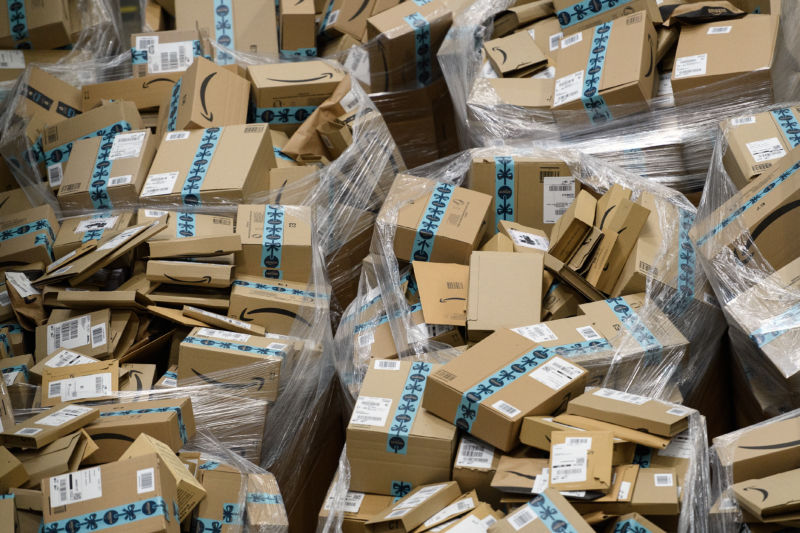
Shoppers who end up stuck with a defective dud product sold by some fly-by-night third-party Amazon seller may finally have an avenue of recourse: a federal court has become the first to rule that Amazon can be held liable for what its “marketplace” vendors sell.
The US 3rd Circuit Court of Appeals, in Philadelphia, issued an opinion (PDF) that said Amazon qualified as a “seller” under Pennsylvania state law, at least for the purposes of the suit. While Amazon argued that every item sold on its site could be traced to a specific vendor, the court said that Amazon “fails to account for the fact that… third-party vendors can communicate with the customer only through Amazon,” which “enables third-party vendors to conceal themselves from the customer, leaving customers injured by defective products with no direct recourse.”
Amazon in its most recent quarterly report said its sprawling third-party marketplace accounted for more than 18% of the entire company’s sales, bringing in $11.14 billion in three months. Analysts expect third-party marketplace revenue to eclipse Amazon’s own first-party sales this year. While that largely laissez-faire digital agora brings in bank for the company that hosts it, consumers for years have faced mounting challenges with recalled products, toxic goods, counterfeits, and complete crap.
The marketplace sets up consumers to buy directly from wholesalers, individual resellers, international businesses, or entities that may be complete scam artists. All of that can make it difficult for a shopper to figure out where, exactly, to complain if something goes wrong.
The case brought to the 3rd Circuit involves a woman who bought a dog collar from a third-party Amazon vendor in December 2014. A few weeks later, the woman was walking her dog and the collar snapped, causing the retractable leash to recoil and injure her left eye, blinding her permanently on that side.
The third-party vendor, The Furry Gang, basically disappeared. Neither the woman nor Amazon was able to find a representative for the seller, which has not had an active Amazon account since May 2016, the court filing says.
The injured customer sued, saying Amazon should be held liable for a defective and dangerous product being sold without even including warnings that could make it safer. The District Court issued a summary judgement for Amazon, finding that it did not qualify as a “seller” under Pennsylvania liability law. The customer appealed.
The appeals court reversed the ruling, noting that “Amazon generally takes no precautions to ensure that third-party vendors are in good standing” under the law in the places they operate and that Amazon does not have a vetting process to ensure that vendors will cooperate with legal processes. The appeals court remanded the case back to the lower court to determine if the product was defective and what should be done about it.
Safe harbor
The lawsuit and the ruling made two separate legal arguments against Amazon. The first had to do with the direct question: is Amazon liable as a merchant? But the other directly relates to the digital nature of the company: section 230 of the Communications Decency Act.
Section 230 has a clause that generally protects online platforms from liability from the content their users generate. The law specifies that a platform shall not be treated “as the publisher or speaker of any information” provided by someone else. This clause is why, for example, it’s hard to sue Twitter over someone else’s Tweets.
The original court ruling in Amazon’s favor found the consumer’s lawsuit against Amazon didn’t fly under section 230, because she sought to hold Amazon liable “as the online publisher of third-party content.”
The majority in the appeal found that section 230 barred some, but not all, of the plaintiff’s claims. “Amazon’s involvement in transactions extends beyond a mere editorial function,” the court held. So to the extent that the negligence and strict liability claims “rely on Amazon’s rule as an actor in the sales process, they are not barred” under section 230.
However, the plaintiff’s claims that Amazon “failed to provide or edit adequate warnings” regarding the product do constitute an editorial function and, therefore, are barred, the court determined.
Will it stick?
The Third Circuit ruling is a first for Amazon, which has faced similar suits before. Federal appeals courts ruled twice in just the past two months that Amazon was not liable for defective products sold by a third-party vendor.
In one instance, batteries in a headlamp malfunctioned and started a fire, which caused more than $300,000 in damages to a consumer’s house. The homeowners’ insurer sued Amazon to try to recoup the funds it paid out to the homeowner.
The appeals court for the 4th Circuit ruled in May that, while Amazon was not immune from lawsuits under section 230, it did not qualify under the law as the “seller” of the defective product and therefore was not liable under Maryland state law for selling defective products.
The 6th Circuit Court of Appeals in June ruled similarly in a Tennessee case featuring an exploding hoverboard.
Appeals courts often look at cases decided in other circuits to determine precedent and make their own rulings. In all of these cases, the suits at hand deal with state consumer protection, torts, or liability law in different states, and so there is not an issue of circuit split for the consideration of strict liability. In other words, if you buy something defective from an Amazon third-party seller and it burns your house down, whether Amazon has responsibility for the inferno depends on what state you live in and what that particular set of courts decides.
https://arstechnica.com/?p=1532561

